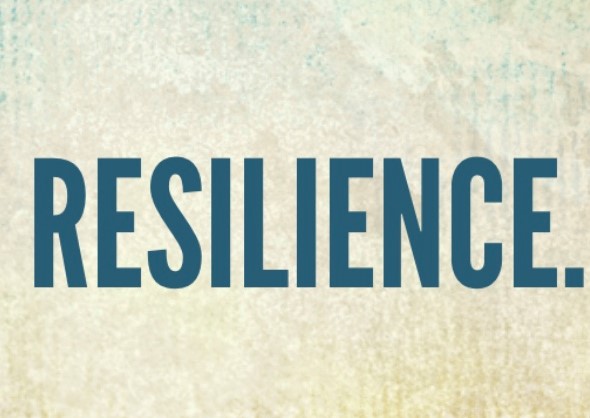Kids and Social Media, What You Need to Know NOW!

Ready to have your ‘mind blown’ by some of these online statistics?
75% of kids under age 13 are currently online with social media accounts, although technically they should not be. The age of consent for Facebook, Twitter and Instagram is 13 years old.
40%+ of teens on the internet use video chat- this includes Facetime, Line, Meerkat, and Periscope apps.
Finally, More than 60% of teens send texts after bedtime when you are probably sleeping and completely unaware.
Kids in this connected generation live in a 24/7 hour online culture with options abound; it is nearly impossible to turn off. With sometimes unknown interactions potentially flying around our kids, what is a parent to do?
Social media and online use is a privilege and a responsibility. It is important to create conditions. Much is positive about social media, as kids that play football have circles widen and it can certainly be a learning tool.
Much can be negative as well. Your child has the potential to communicate with anyone across the world. Stay involved in his media life to guide them along. Stay educated on technology trends by reading publications such as Wired. He may know more about the newest and hottest APP, but you are the boss. Again, assigning restrictions is key.
Communication with your kids stands crucial, monitoring their social media accounts is imperative.
The American Academy of Pediatrics recommends limiting screen time (includes tv/gaming/internet) to a predetermined amount of hours and ramping up hours spent offline. Impose restrictions- maximum 1-3 hours of internet usage per day.
More screen time means less time training and preparing for battle on the football field.
Research shows teens are positive about their online experience, though they may feel distracted or addicted to technology. Parents should develop rules- including time limits and bedtime is bedtime. No texts/surfing/gaming. Parents- best practice is to have the phone charger in your room (each night you will control the phone and in the morning see the texts that arrive during late night hours).
Passwords
Do you have your kid’s passwords? If not, you definitely should. It is not about trust, but parents need to proactively check to see what is going on. Trust is earned (over years). For a child 10 years old, a parent needs to often spot check and look for out of the ordinary instances. For older teens, the more often all is ok, the less spot checking is necessary. Keeping your kids safe online is your priority.
What is posted online is important because everyone, and I do mean everyone has the potential to see it! We have heard countless stories of how social media plays a significant part in ruining football scholarship opportunities. Assume that high school and college coaches are seeing everything your kids post to determine their character and fit in their program. Read examples on how silly posts via social media has led to lost scholarships.
Did you know? Medical schools have a dedicated person in their human resources department with a sole job to monitor applicants’ social media accounts. It is that serious.
Key Points
Know what your kids are doing online. Additionally:
- Know which social tool they are using and how to apply privacy settings.
- Talk to them about the dangers of going online.
- Set time restrictions.
- Have boundaries.
- Careful what kids post.
- Parents should always be the example, do not post questionable material.
What are your personal limits? If you are always online- your child will likely follow suit.
Cyber bulling
There is a new era in bullying, no longer confined to the playground after school. Now, there is no escaping it. When someone posts content deemed objectionable by a group of kids on twitter, it’s not just them, it can be a gang up from other schools. A situation can quickly become amplified and out of control.
Education is the key component to end cyber bulling, it is the understanding that there is someone on the other side and feelings will be hurt. In some instances, when kids, or even adults, sign onto their computer they become different people. It’s easy to be a bully when you’re sitting behind a computer screen. If your child is a victim- Block the bully. Encourage his friends to unfollow the person. When peers stand up for other peers, it is more effective against the bully that tries to isolate their victim. Teammates, where are you? Cyber crime is not localized it can become out of control. Parents need to research school policy. Any threat of violence, contact the school and/or local law enforcement. Be proactive rather than reactive in these situations.
Schools do not understand how to handle cyber bullying, but you should. Do not ignore cyber bullying occurrences as the news has highlighted many horrible instances of these actions.
Facebook, Instagram, Snapchat, and Twitter
Twitter seems to be an easy source to bully. Subtweeting is a message on twitter that indirectly refers to another person (a subtle bully tactic), without saying the person’s name.
Understand what the consequences are of posting, assume that the video, photo, or words will be shared once, twice, 1000 times.It’s easy to be exploited online. A small piece of information can develop into a physical confrontation. Older children are more likely to share personal information online because it is just so commonplace. Kids- be smart about what you post!
There are countless benefits to social media for a youth football athlete. This is where a little guy can begin to showcase his talents on the field- post clips, drills and get better. Parents, it is your duty to ensure the pitfalls of social media are avoided at all costs.

Parents- educate! Spend time with your kids. Personalization between family members are often lost, and this is why we love football as it brings families together. Encourage your kids to post positive, uplifting comments.
For youth football athletes, social media channels are the first place they go to post highlight films, share photos and communicate with teammates/friends/family. Be cognizant of the dangers online. Parents, do not shy away from technology- it is here to stay.










